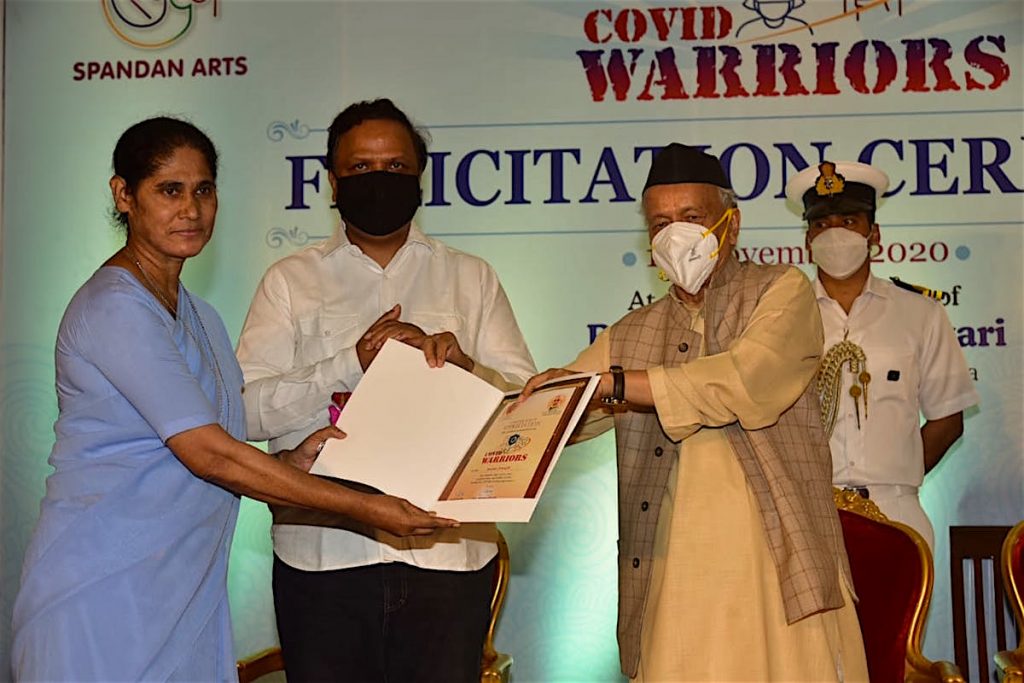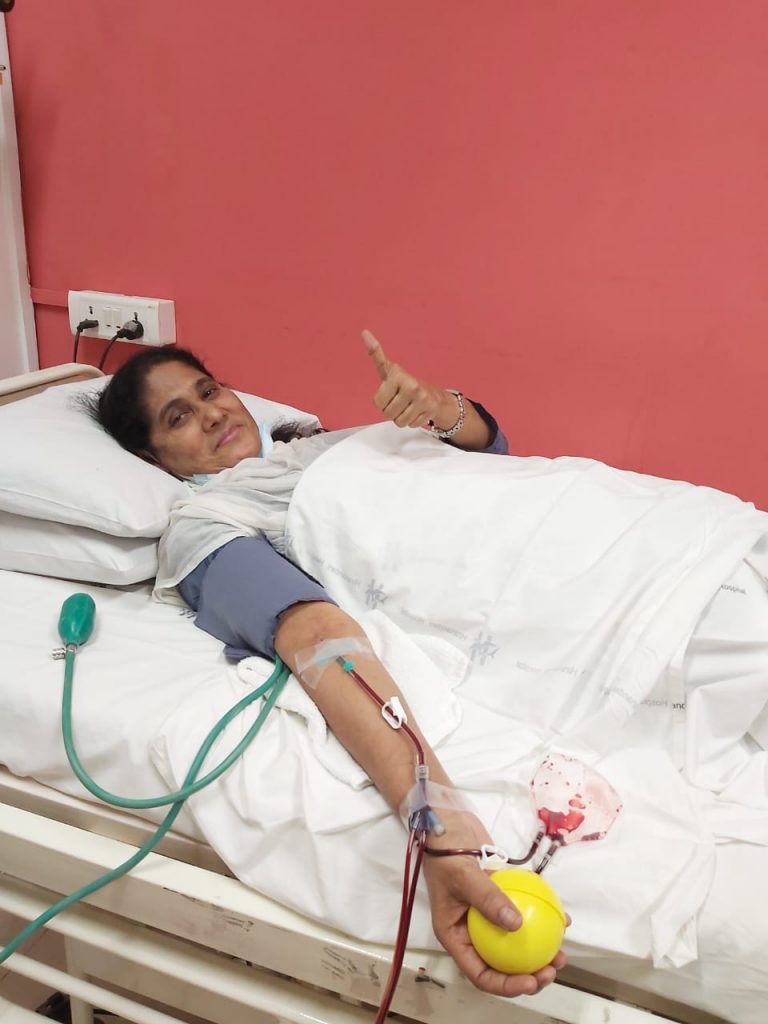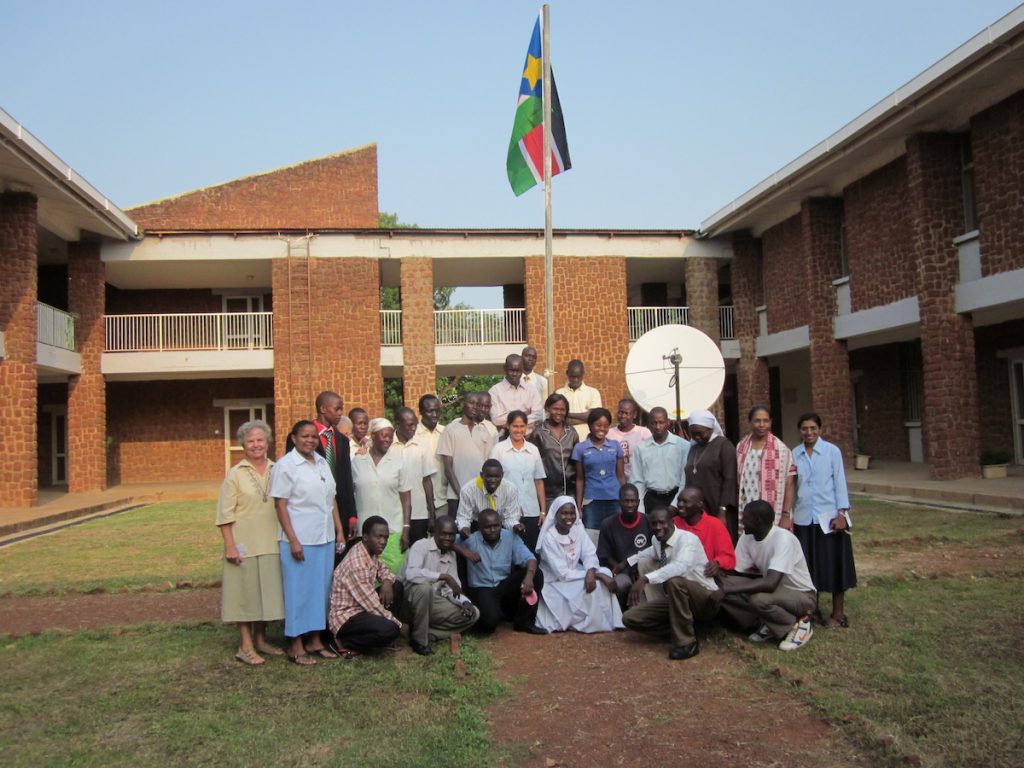
After falling ill to new coronavirus, Holy Spirit Sister Sneha Joseph turned adversity into an opportunity to help others by donating plasma five times and achieve the distinction of being the only woman in India to do so.
On Nov. 1, Sister Joseph, executive director of Holy Spirit Hospital, Mumbai, was announced as a ‘COVID-19 warrior’ by Governor Bhagat Singh Koshyari of western Maharashtra state for being the first woman in the country to donate plasma on four occasions. Just over a month later she would again donate.
Convalescent plasma therapy involves injecting a COVID-19 patient with the plasma of a recovered patient that is rich in anti-bodies.
“Having gone through it myself I know first-hand the suffering COVID patients undergo. I wanted to help the very poor with plasma donation,” said Sister Joseph who was diagnosed with the virus in May and hospitalized for almost three weeks.
“As my condition worsened my lungs were affected and I was scared but I pulled through as I believe that God had greater plans for me,” said the 57-year-old.
A month after recovering, the Missionary Sisters Servants of the Holy Spirit nun had a checkup that found that her antibody count was high.
Preliminary blood tests showed that she belonged to the AB group, making her a universal donor, and she met all the criteria for plasma donation.
She donated plasma to the government-run BYL Nair Hospital in Mumbai that caters to the poor. Nair Hospital is one site for the PLATINA trial that is studying the efficacy of plasma in treating critical patients.
After 20 days, Sister Joseph again had her blood tested and found her antibodies count remained high, so she donated plasma once more. She repeated the procedure after several days and found herself still eligible to donate plasma. This time the Nair Hospital told her she was the first woman in Maharashtra to be donating plasma three times.
“Again, after a gap of 20 days the hospital approached me as there was a patient urgently in need of an AB group plasma donor,” Sister Joseph said. “This time around I was told that I am probably the first woman in the country to donate plasma four times,” she said.
“I had actually planned to donate it to Hiranandani Hospital but promised them that if I am able to donate for a fifth time then it would be to them and I am glad I could keep my word.”
A maximum of 10 patients would have likely benefitted from Sister Joseph’s donation on July 25, Aug. 11, Sept. 9, Oct. 26 and her fifth donation on Dec. 9.
Two people can benefit from a single donation of 400ml of plasma, said the nun.
It sure is a miracle, she said adding that God’s grace unfolds in real time.
“There’s a purpose to everything happening in our lives we may not be able to figure it out immediately but later it will dawn on us yes this is what God wanted,” said Sister Joseph, the youngest among six children of a farmer in Southern Kerala state.

“I believe God had a purpose. Being a Religious missionary, service to humanity is our mission and I have a deep sense of satisfaction. I am really happy,” she said.
Dr. Kusum Jashnani, professor and head of pathology at BYL Nair Hospital, said that plasma can be donated once every 15 days if the donor meets all criteria for donation.
Antibodies count in the body remains high at times for 4-5 months, Dr. Jashnani said.
She said that the donor’s plasma should be rich in antibodies, haemoglobin should be of a specified level and the donor should be free from certain diseases like diabetes, HIV-AIDS and hepatitis etc.
In the case of women donors, those who have been pregnant cannot donate, she added.
Sister Joseph’s community superior Sister Natalia D’Souza said that she is very patient-oriented.
“We are definitely proud of her. I don’t find such zeal in others. How many millions got infected but how many have donated even once?” Sister D’Souza said.
“That’s her nature as executive director of the hospital, she would at times bend rules to help people,” she said.
“At the first outbreak of the new coronavirus in the city, we had 140 patients. Handling them at a time the world was clueless on how to tackle the disease was no mean achievement. Besides over 100 hospital staff contracted the infection and were treated at the hospital,” Sister D’Souza said describing the initial challenges that the pandemic brought to the hospital.
Time in Sudan
Before becoming the hospital executive, Sister Joseph had a 7-year stint in strife-torn Sudan.
“I had opted to go but was ignorant of the ground reality there. After reaching Sudan I realized life was a veritable hell. The war-torn country was devastated. There was danger to life, no amenities and no electricity,” Sister Joseph said.
She spent two months crying and wanting to comeback but had to stay put. It was an extremely difficult situation. One of the nuns from her congregation had been shot dead.
There was constant threat to her and other sisters lives but they ignored these thinking “if we are destined to die here so be it,” she said.
“We had to make do with candles. There was one generator that worked only for two hours. Days and nights were blistering hot without even a fan and mosquitoes galore. We could not go out and buy diesel. The roads were deserted there were no shops open. Only armed men roamed the streets,” she said.
But things improved somewhat after what is now known as South Sudan became independent from Sudan in 2011.

Later supporters in Rome donated a generator and helped turn the ruins of a building into a nursing college. Engineers and masons were requisitioned from neighboring Uganda and Kenya for the two-year build, she said.
Sister Joseph, who had done her master’s in nursing, headed the college. She said it was initially very tough as the students were all traumatized by the conflict that had plagued the region and psychologists had to be called in to counsel them.
She then managed to get 60 of them to graduate as nurses. Very few were women as girls usually dropped out of school and were married off early, she said.
In the end Sister Joseph’s life has shown she has an uncanny knack of turning difficult situations into ‘grace-filled opportunities’ for the greater good. “I just count on God’s grace and He takes over,” Sister Joseph said.
Source: Licas Philippines
0 Comments